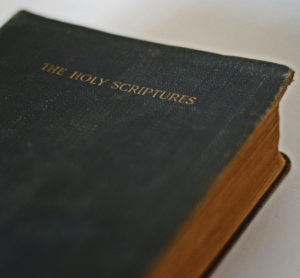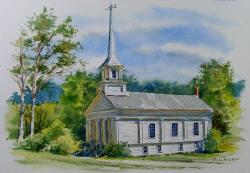 You and I were never meant to do Christianity alone. The Church is not only being built by our Lord Jesus but is His provision for each one of His children – a place where each of us can be nurtured, protected and carry out our differing ministries in the body. C. H. Spurgeon called the Local Church “the happiest place on earth.” I agree. At least this is what it should be.
You and I were never meant to do Christianity alone. The Church is not only being built by our Lord Jesus but is His provision for each one of His children – a place where each of us can be nurtured, protected and carry out our differing ministries in the body. C. H. Spurgeon called the Local Church “the happiest place on earth.” I agree. At least this is what it should be.
When Christ, the Good Shepherd, raises up a Church, He also raises up under shepherds. They are His provision for us. While other words (such as “elders”) are frequently used in the New Testament to describe the leaders in a Church, the word ‘pastors’ is only seen once. It occurs in Ephesians 4:11 and the original meaning is really ‘shepherds’ which is the how the ESV renders it.
I often think about my responsibilities as an elder and rightly so. It is a massive privilege and responsibility and one that I will give an account to the Lord for one day. (Heb. 13:17) There is never a day when that thought does not cross my mind.
Along that line, I was thinking about Paul’s words to Titus 1:5, namely, “This is why I left you in Crete, so that you might put what remained into order, and appoint elders in every town as I directed you—”.
Other translations bring out the original meaning perhaps a little more clearly by saying, “set in order what was unfinished and appoint elders in every town..”, “set in order the things lacking and might appoint elders in every town, as I directed you..”, “put in order what was left unfinished and appoint elders in every town…” The message is clear that until elders are in place, something is very lacking in the formation of a local Church. Whenever we see the word “elder” in the New Testament, unless it is speaking of the qualifications for an elder (where we would expect the word to be used in the singular), it is always used in the plural – “elders”, rather than “elder”. Even here, Paul did not write “appoint an elder in every town” but “appoint elders…”
Dr. Michael Kruger writes,
“The New Testament evidence itself seems to favor a plurality of elders as the standard model. The book of Acts tells us that as the apostles planted churches, they appointed “elders” (from the Greek term πρεσβυτέρος) to oversee them (Acts 11:30; 14:23; 15:2; 20:17). Likewise, Titus is told to “appoint elders in every town” (Titus 1:5).
A very similar word, ἐπι,σκoπος (“bishop” or “overseer”), is used in other contexts to describe what appears to be the same ruling office (Phil 1:1; 1 Tim 3:1-7). The overlap between these two terms is evident in Acts 20:28 when Paul, while addressing the Ephesian “elders” (πρεσβυτέρους), declares that “The Holy Spirit has made you overseers (ἐπισκόπους).” Thus, the New Testament writings indicate that the office of elder/bishop is functionally one and the same.”
He continues:
“But, what about the church after the New Testament? Did they maintain the model of multiple elders? Three quick examples suggest they maintained this structure at least for a little while:
1. At one point, the Didache addresses the issue of church government directly, “And so, elect for yourselves bishops (ἐπισκόπους) and deacons who are worthy of the Lord, gentle men who are not fond of money, who are true and approved” (15.1). It is noteworthy that the author mentions plural bishops—not a single ruling bishop—and that he places these bishops alongside the office of deacon, as Paul himself does (e.g., Phil 1:1; 1 Tim 3:1-13). Thus, as noted above, it appears that the bishops described here are essentially equivalent to the office of “elder.”
2. A letter known as 1 Clement (c.96) also has much to say about early church governance. This letter is attributed to a “Clement”—whose identity remains uncertain—who represents the church in Rome and writes to the church at Corinth to deal with the fallout of a recent turnover in leadership. The author is writing to convince (not command) the Corinthians to reinstate its bishops (elders) who were wrongly deposed. The letter affirms the testimony of the book of Acts when it tells us that the apostles initially appointed “bishops (ἐπισκόπους) and deacons” in the various churches they visited (42.4). After the time of the apostles, bishops were appointed “by other reputable men with the entire church giving its approval” (44.3). This is an echo of the Didache which indicated that bishops were elected by the church.
3. The Shepherd of Hermas (c.150) provides another confirmation of this governance structure in the second century. After Hermas writes down the angelic vision in a book, he is told, “you will read yours in this city, with the presbyters who lead the church” (Vis. 8.3).Here we are told that the church leadership structure is a plurality of “presbyters” (πρεσβυτέρων) or elders. The author also uses the term “bishop,” but always in the plural and often alongside the office of deacon (Vis. 13.1; Sim. 104.2).
In sum, the NT texts and texts from the early second century indicate that a plurality of elders was the standard structure in the earliest stages. But, as noted above, the idea of a singular bishop began to dominate by the end of the second century.
What led to this transition? Most scholars argue that it was the heretical battles fought by the church in the second century that led them to turn to key leaders to defend and represent the church.
This transition is described remarkably well by Jerome himself:
The presbyter is the same as the bishop, and before parties had been raised up in religion by the provocations of Satan, the churches were governed by the Senate of the presbyters. But as each one sought to appropriate to himself those whom he had baptized, instead of leading them to Christ, it was appointed that one of the presbyters, elected by his colleagues, should be set over all the others, and have chief supervision over the general well-being of the community. . . Without doubt it is the duty of the presbyters to bear in mind that by the discipline of the Church they are subordinated to him who has been given them as their head, but it is fitting that the bishops, on their side, do not forget that if they are set over the presbyters, it is the result of tradition, and not by the fact of a particular institution by the Lord (Comm. Tit. 1.7).
Jerome’s comments provide a great summary of this debate. While the single-bishop model might have developed for practical reasons, the plurality of elders model seems to go back to the very beginning.”
I don’t believe a Church with merely one elder in place is a scriptural Church.. not yet anyway… and if this is the case, as Paul’s words to Titus here say, something is still left unfinished; something needs to be set in order. Again, as imperfect as they are, elders are Christ’s provision for the sheep He loves so dearly.
I say all this to say that behind the elders seen in a local Church is the Lord Himself (now unseen), who has raised up these men for our mutual edification. The elders are in no way “better” than others – that is for sure – they are simply men ordained by God to fulfill a function in the Body as under-shepherds, under the Chief Shepherd.


